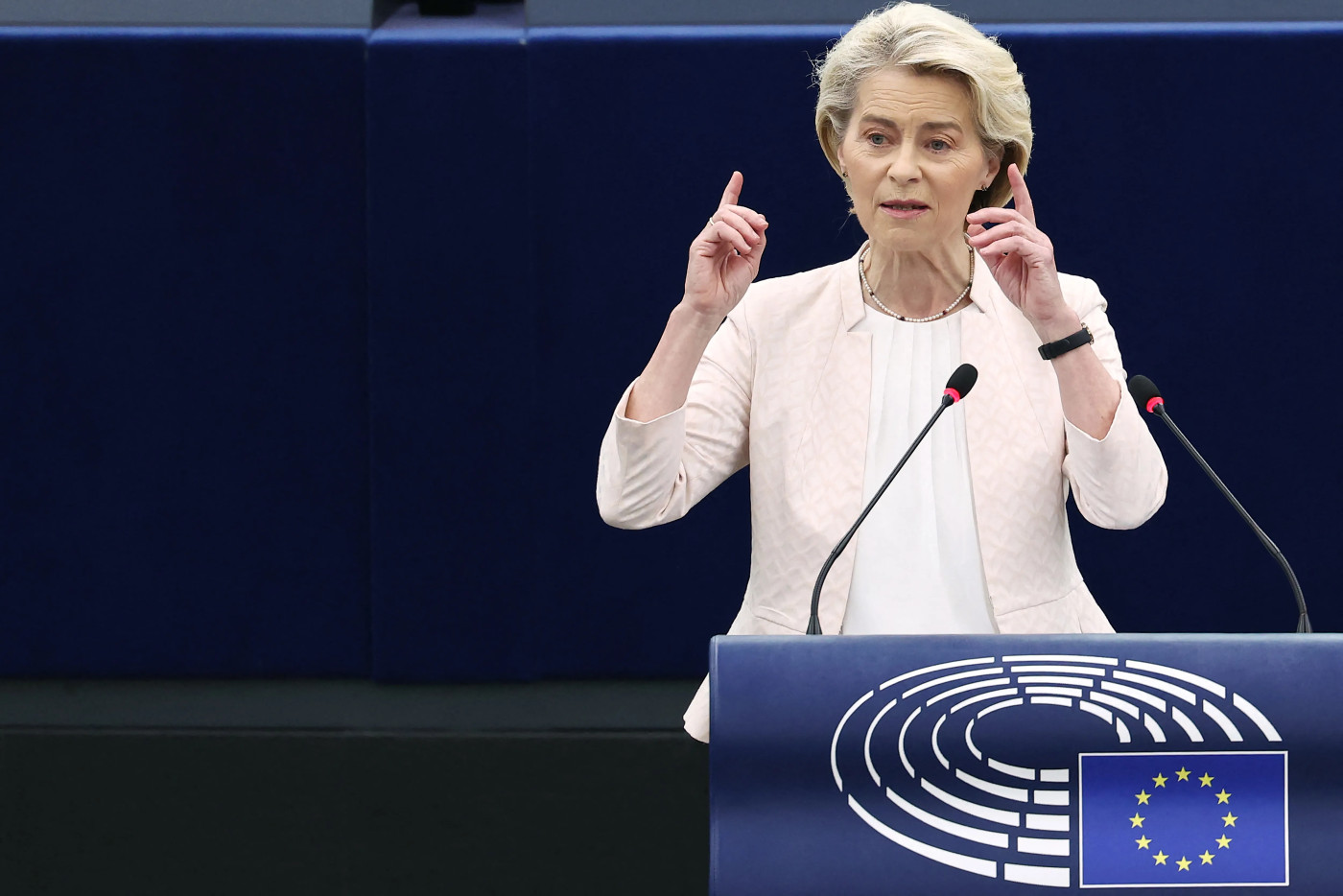Russia Issues Nuclear Threat To NATO
A top Russian official has issued a nuclear warning to NATO, days after the U.S. announced that it will be stationing developmental hypersonic weapons in Europe.
When asked whether Russia could deploy nuclear missiles in response to Washington's plan to deploy long-range fire capabilities in Germany, Sergei Ryabkov, Russia's deputy foreign minister in charge of ties with the U.S., nonproliferation and arms control, told reporters in Moscow on Thursday that he does not "rule out any options."
The U.S. and Germany said in a joint statement published July 10 that Washington will deploy longer-range missiles in Germany in 2026. This will include SM-6, Tomahawk, and developmental hypersonic weapons "which have significantly longer range than current land-based fires in Europe," they said.
The U.S. and Germany said exercising these "advanced capabilities" will "demonstrate the U.S. commitment to NATO and its contributions to European integrated deterrence."
"If representatives of the Federal Government of Germany consider it justified to begin some escalatory measures under the pretext of what we have in [the Kaliningrad] region, then we will respond in terms of compensatory measures in the way that we consider most acceptable," Ryabkov warned.
"Nothing is predetermined, including the further escalation of the situation," Ryabkov told reporters.
"Unfortunately, for now, the West, under far-fetched pretexts, in search of reasons to attribute something to us again from the point of view of an encroachment on its security, is following precisely this escalation path," he continued.
"This is regrettable, but it will not stop us from the point of view of solving the problems of ensuring our security along the entire perimeter of the Russian borders, including, of course, the zone of the [war in Ukraine]."
Newsweek has contacted NATO for comment by email.
Ties between Washington and Moscow have become increasingly strained over Russian President Vladimir Putin's decision to launch a full-scale invasion of Ukraine in February 2022. Russian officials and guests on Russian state TV have routinely called for strikes on U.S. soil over aid and weapons provided by the Biden administration to Kyiv.
German Defense Minister Boris Pistorius said in an interview with German-language newspaper Tageblatt, published Thursday, that the decision by Washington to station developmental hypersonic weapons in his country in 2026 was driven by Russia's deployment of Iskander missiles in Russia's Kaliningrad exclave bordering Poland and Lithuania in 2018.
"The world has become more uncertain than it was five or ten years ago. We have to protect ourselves as best we can," Pistorius said.
"What the U.S. will do in Germany from 2026 onward is nothing other than counteract the Russian threat of stationing Iskander [missiles] in Kaliningrad. Then deterrence will work again," the defense minister added.
"If it is clear to everyone that Germany and NATO are able to defend themselves successfully, the likelihood that we will be attacked will decrease."
Do you have a tip on a world news story that Newsweek should be covering? Do you have a question about the Russia-Ukraine war? Let us know via worldnews@newsweek.com.
Disclaimer: The copyright of this article belongs to the original author. Reposting this article is solely for the purpose of information dissemination and does not constitute any investment advice. If there is any infringement, please contact us immediately. We will make corrections or deletions as necessary. Thank you.

